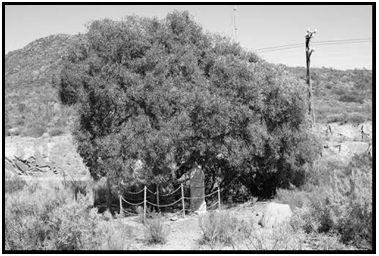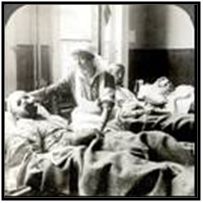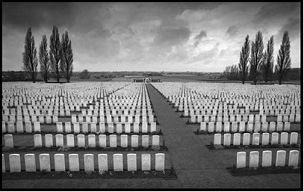

 The South African
The South African
Brian Culross
Sprinkled through this issue of Military History Journal are a handful of poems inspired by my readings around the subject of the First World War, and (inevitably) by my readings of WWI poets – Sassoon, Owen, Kipling, and others. Another influence has been – as elsewhere in my verses – the works of A.E. Housman.
Most, but not all, were composed roughly in the period 2015-16.
The collection begins with an ‘odd man out’ – a poem inspired by (and dating from) my visits to Anglo-Boer War sites during my years in Durban ...
During my years in Durban I often went, in company with friends from the local Hiking Club, on weekend explorations of Anglo-Boer War battle fields – both major encounters and minor skirmishes. These trips, and on them the discovery of isolated and almost forgotten graves being swallowed by the bush, as well as a fair amount of reading about the subject, led to this poem. It remembers, wistfully, all the ‘Anglo’ dead of that war who sweated with heat and fear, and then died, far from home; whose sacrifice is now a completely impersonal matter for historians to summarise and tabulate, and whose short immortality died when mothers, lovers, sisters and friends in their turn took their memories and mental images to their graves. Dust, verily, to dust.

Who later went whoring at harvest
In the hayricks, among the sheaves –
Who drank with the worst, fought with the best –
Feckless often, and sometimes thieves –
We two …
Being careless of life, took an oath,
Donned puttees and khaki, and thus
Came here to fight your sons, nothing loathe,
Learned to march, and to dig, and to cuss,
– And found, as the burst took us both
That life could be careless of us.
The firing lever on larger artillery pieces – which exhibited a fearful recoil – was pulled from a relatively safe distance by means of a cord, usually referred to as a lanyard. But I only had room for a single syllable ...
But we came strangers to this fatal land,
Not knowing each – and then he raised his hand,
And – cord, gun, death: such was the fateful chain
That binds us always on this fetid plain.
In a pale imitation of Kipling’s pithy and justly famous “Epitaphs” (‘I could not look on Death ...’ and others), and Housman’s similar lines (‘Here dead we lie ...) I tried my hand at writing in the same vein. Here and on p 38 are two examples.

(The speaker is a nurse or VAD)
My breaking heart could not hold back its primal tears
As low I leant and listened to his whispered fears:
For though he pleaded, as I held his weakening hand,
In truth I could not say there was a Promised Land.

To war, to war, to war they went, with regimental pride;
In fear, in fear, in fear they rose, and charged, and so they died.
The ground they won, and lost again, and hallowed with their blood
Was but a meagre acre, worthless wire-bound stinking mud.
Yet now they rest in glory, rest in glory for all time,
Delivered by our reverence from mud and blood and slime.
Though mindless sleep is now their lot, and free of all regret,
Regret, remorse and pain are ours, and we must not forget.
So tend the graves of these brave men, these ranks of Portland stone,
These ranks, these rows, these sacred groves – else how may we atone
For their lost lives, and those who lost, and lost ideals and more? –
And on these endless altars swear the oath of ‘Nevermore!’
Return to Journal Index OR Society's Home page
South African Military History Society / scribe@samilitaryhistory.org